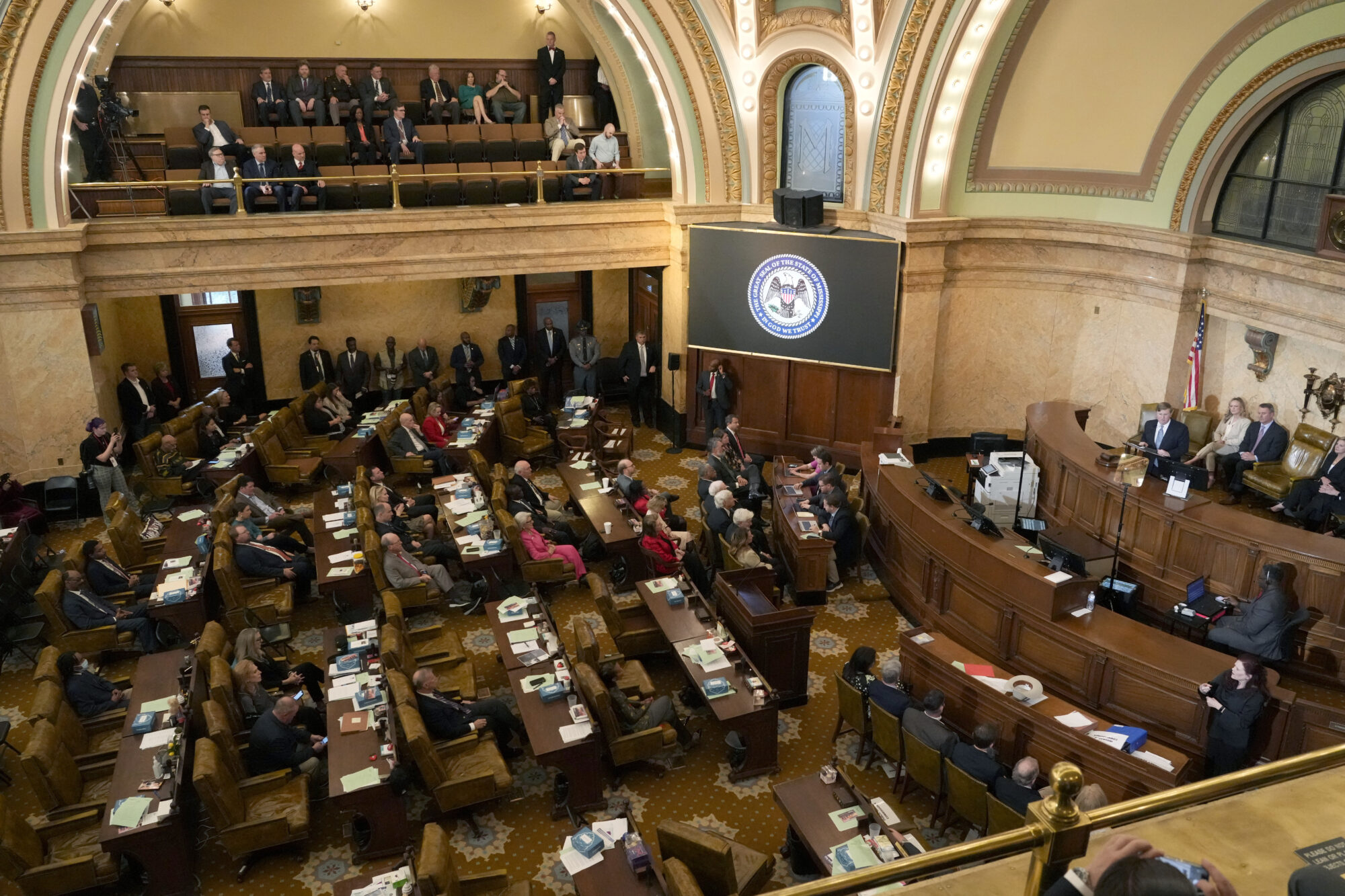U.S. Senator Roger Wicker Delivers Weekly Republican Address
‘The stakes are unmistakably high. Crippling defense cuts are just around the corner, and we have an obligation to make tough decisions on how to avoid sequestration and balance the budget long-term.’
WASHINGTON, DC – This week President Obama signed the Sequestration Transparency Act and by September 6th he will be required to provide taxpayers and Congress with his plan for the defense cuts he insisted be part of the sequestration scheduled to begin on January 2, 2013. The President’s own defense secretary has said these cuts would hollow out our Armed Forces. In the Weekly Republican Address, U.S. Sen. Roger Wicker (R-Mississippi) says, “severe and indiscriminate cuts that harm our security are not the way to address America’s fiscal challenges.” He says, “unless the current law is changed, sequestration will force another half a trillion in cuts to defense programs over the next 10 years,” with almost 1 million jobs at risk. The Weekly Republican Address is available in both audio and video format and is embargoed until 6:00 a.m. ET, Saturday, August 11, 2012. The audio of the address is available here, the video will be available here and you may download the address here. A full transcript of the address follows:
“Hello. I’m Senator Roger Wicker from Mississippi.
“A little over a year ago, Congress and the White House enacted the Budget Control Act as yet another attempt to reach a bipartisan agreement on how to fix America’s unprecedented debt crisis.
“The national debt, a staggering $16 trillion, is unsustainable, and we need to change course.
“The goal of the Budget Control Act was to have a long-term debt reduction plan that seriously addressed federal spending, soaring entitlement programs, and healthcare costs.
“A bipartisan committee was created to make tough but necessary budget decisions, and as an incentive to get the job done, a very drastic fallback plan was put in place—automatic, across-the-board cuts falling heavily on our military. This is known as budget sequestration.
“Our expectation was that the so-called super-committee would work harder and come together on a solution to avoid sequestration’s devastating, meat-ax approach, while tackling federal spending in a meaningful way.
“With bipartisan goodwill, there was a chance for real and lasting budget reform.
“But at a moment when presidential leadership could have helped, President Obama was silent. The committee eventually disbanded in failure.
“Our country now faces unacceptable consequences that will become a reality on January 3rd when sequestration goes into effect.
“Unless the current law is changed, sequestration will force another half a trillion in cuts to defense programs over the next 10 years. Defense Secretary Leon Panetta has described the effect on our national security as devastating, and I agree.
“Although the full impact of these cuts remains unknown, some very startling projections have emerged.
“Under sequestration:
• Army units would receive less training before they deploy to the Middle East.
• Marine Corps troop levels would be cut by 10 percent, leaving our Marines without sufficient manpower to meet even one major overseas operation.
• The Navy fleet would drop to 230 ships, the lowest number since World War I.
• And the Air Force would lose vital maintenance funds required to keep our fighters, bombers, and remotely-piloted aircraft flying around the world.
“The stakes are unmistakably high. Crippling defense cuts are just around the corner, and we have an obligation to make tough decisions on how to avoid sequestration and balance the budget long-term.
“Some defense manufacturers have already begun the process of issuing legally required layoff warning notices to shareholders and employees. According to multiple forecasts, up to 1 million jobs are at risk. One report estimates that my home state of Mississippi alone could lose more than 11,000 jobs.
“With the Administration having kept its plans hidden from public view, Congress overwhelmingly passed the Sequestration Transparency Act, requiring the Obama Administration to submit a report to Congress on the impact that sequestration will have. This bill will shine light on the President’s plans.
“It’s time for President Obama to inform our men and women in uniform—as well as Congress and the American public—how it will move forward in the wake of devastating cuts. The millions of Americans who defend our country and work to build our military equipment should not have to wait until after Election Day.
“Severe and indiscriminate cuts that harm our security are not the way to address America’s fiscal challenges.
“Republicans have repeatedly reached out to President Obama with responsible plans to cut spending without crippling our military.
“The Republican-controlled House has already passed legislation to postpone the sequester. Republicans in the Senate have offered plans of their own.
“Last month, Republican leaders in the Senate and House sent a letter to the President offering to work with him to find common ground and enact responsible budget savings.
“So far, the President has failed to offer any answer.
“Mr. President—it is hard to reach a bipartisan solution if the Commander-in-Chief is not engaged. Leader Reid—we will not come to an agreement if your own Democratic Senate Campaign Chairman keeps calling for us to drive off the fiscal cliff. For over three years, the Democratic leadership of the Senate has refused even to bring a budget to the floor for a vote.
“Tackling spending issues is difficult when the budget committee doesn’t do its work, but we still have an opportunity to solve America’s long-term budget concerns.
“The looming sequester crisis should be an opportunity for both parties to work together now to avoid permanent harm to our troops and to our security. Let’s hope the Commander-in-Chief decides to lead.”






